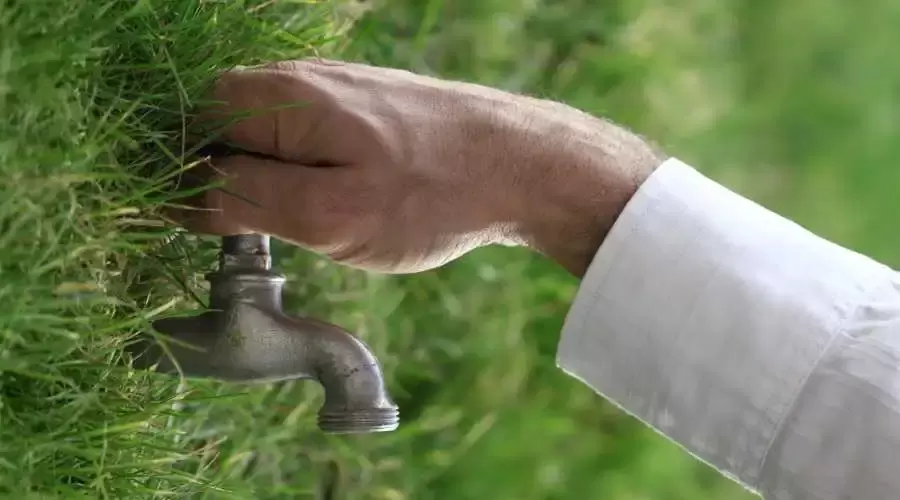We all know all too well how terrible and devastating water scarcity can be as New Jerseyans. We’ve learned over the last few years that water can simply come and go. In fact, the lack of water is increasingly becoming a severe issue across the nation. Over the next ten years, 40 states should prepare for serious water shortages, according to the Environmental Protection Agency.
Water conservation at home benefits California as a whole as well as your electricity cost. Here are 10 surprisingly simple strategies to reduce water use in your home. Being able to save money and water for your state will make you feel good.
1. Spend money on WaterSense goods.
When goods that use water meet a number of crucial water-saving criteria, the EPA honors them with the WaterSense designation. WaterSense shower heads, faucets, and toilets:
- At least equally efficient as their less water-efficient competitors.
- A minimum of 20% more efficient than comparable items on the market in general
- Conforming to EPA national water conservation guidelines
- Will result in a household seeing considerable water savings.
- Utilize a variety of technology alternatives to increase their water efficiency.
Nearly all appliances and fixtures that use water are eligible for the WaterSense label, according to the EPA. One of the most effective and straightforward ways to save water in your house is to switch to WaterSense fixtures.
2. If you aren’t utilizing the tap right away, turn it off.
Do you brush your teeth? Do you wash your hands? Whenever you aren’t utilizing the water directly, turn off the faucet. If you need it again, you can always switch it back on for a little period. You’d be shocked at how much water it saves, even if it seems like a small improvement (and it is!).
3. Detects leaks immediately and corrects them.
No matter how small they appear to be, hidden or neglected leaks lose a significant quantity of water annually. As soon as you see any dripping faucets, loose joints, or hairline pipe cracks, fix them. Fixing leaks can not only help you save water, but it will also safeguard your plumbing.
4. Shorten your showers.
Up to five gallons of water per minute can be used by the typical (non-WaterSense) shower head! That implies you might save up to 10 gallons each day if you reduced the length of your shower by only two minutes. average person in the U.S. uses 80-100 gallons/day, that easily reduces your usage by 10%. Your time, water, and money will all be much reduced if you take purposeful showers. Installing a water-saving shower head can also be helpful in this situation.
5. Wait until the washer and dishwasher are completely full before using them.
It’s tempting, yet wasteful, to wash only your favorite clothing or run the dishwasher right after every meal. Never use your dishwasher or washing machine before you have a full load to wash.
Both of these gadgets consume a lot of water, so you can conserve water by using them infrequently and on purpose. Nevertheless, utilizing machines is still more effective than doing the laundry by hand.
6. Take into account putting in a rain barrel.
For houses with lots of plants to take care of, rainwater collecting is fantastic. Use the water you collect to irrigate your lawn, garden, and indoor and outdoor plants. Rain barrels can help you conserve a surprisingly large quantity of water and are inexpensive and simple to maintain. You’ll use your tap less frequently the more naturally occurring water you can reuse.
7. Make use of less power.
It might come as a surprise, but hydro-powered technology is used to cool power plants. By analogy, using less power also means using less water. Eliminate as much unnecessary electrical use as you can. As soon as you leave a room, turn off any fans. Before retiring to sleep, turn out the lights. During the day, light your house with natural daylight. You’ll save more money the more you can cut.
8. Always keep water in the refrigerator.
Save yourself the water flowing down the drain by keeping cool drinking water in your refrigerator rather than running the tap until the water is chilled. It will be less expensive and more gratifying.
9. When not in use, cover your pool.
Pool covers keep the temperature constant and lessen evaporation. Pool coverings, according to the Department of Energy, can cut the amount of water that needs to be replaced by more than 50%. Your pool’s chemical usage and re-heating expenses will both be decreased by covering it. It’s quick, straightforward, and simple, and it helps you save money and water.
10. Avoid washing your own automobile.
You may need more than 100 gallons of water to wash your automobile in your driveway, did you know that? In contrast, the majority of commercial vehicle washes employ recirculating systems that significantly improve their ability to conserve water. However, even commercial car washes frequently use a lot of water. When you do wash your automobile, we advise doing so at a professional car wash.
Maintaining Full Water Reservoirs in New Jersey
Did you know that you can check our California reservoirs’ water levels online? No matter how much or how little water we have on a daily basis, adopting a few new water-saving techniques is always a good idea. All that is needed is a little diligence.
Do you still have concerns about how to make your house more water-efficient? Do you require assistance setting up a new fixture or choosing the ideal WaterSense showerhead? BJC Clifton Plumbers can assist you with any water-related problem in your home. Give us a call if you have any inquiries or problems with plumbing.


